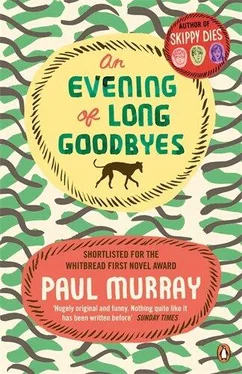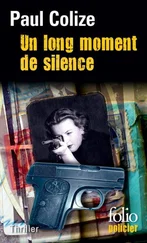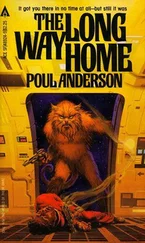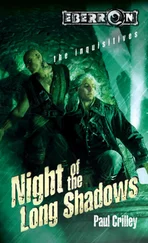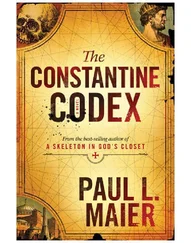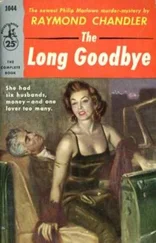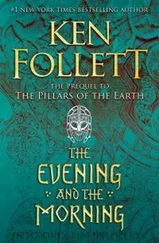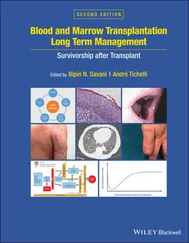‘See you soon,’ I said.
‘See you soon,’ the beautiful receptionist said as I passed back through the lobby; and the fragrance of lilacs accompanied me a little way down the street.
The city seemed quite different now. The sun had gone in and a louring gunmetal sky hung over the streets. All around huge cranes laboured, drills snored, jackhammers juddered. The noise was earsplitting, and with every step it became more unbearable — the din, the hustle, this endless parade of unfamiliar faces, each presenting its own split-second interrogation before merging back into the amorphous throng.
Coming down Clare Street, I saw that a coachload of elderly Americans in space-age rainwear had become snarled up with a mass of pasty-faced native schoolchildren, and thinking to avoid them, I ducked through the Lincoln Place gate into my alma mater . Immediately I wished I hadn’t, because I saw at once that not even Trinity had been spared the ravages of the new era. Sanding machines assailed the Museum building; a veritable Golgotha of a library was being raised to the west. With a sudden fretful pang I sought out the little grove of trees in a secluded corner of the cricket pitch where, one woozy outrageous night, Patsy and I had come closest to consummating our love, or my love anyway. But it had been railed off, and from behind the palings a bulldozer could be heard, devouring. It was depressing. I wondered at these glossy people who didn’t seem to care, who walked blithely through the destruction as if they had been born yesterday.
I was walking through New Square wrapped in sombre thoughts when somebody called my name. I turned to see a flabby office type in a cheap blue suit. He was standing with his hands in his pockets on the ramp leading up to the Arts building, where Trinity’s high society traditionally gathered to snipe and flirt and smoke countless cigarettes: I thought at first he must be a ghost, or a shade stepped out of my memory.
‘It is you,’ he said. ‘I thought I recognized the, ah…’ He tapped at his breast. I looked down and saw that the monogrammed corner of my handkerchief was protruding from my jacket pocket.
‘Hoyland Maffey,’ I said. ‘Well, well.’
‘Been a while,’ Hoyland said.
‘Yes,’ I said. After that, I didn’t know quite what to say; neither did he, obviously, and for a moment we stood there awkwardly, unsure that we wanted to take the conversation any further.
‘Funny I should run into you here,’ he said, gesturing at the trees, the architecture. ‘What are you doing, reminiscing?’
‘Yes, I suppose.’ His spare tyre had inflated noticeably — yet at the same time he looked lessened somehow, not so Hoylandy as he had been. No doubt he was thinking the same thing about me; I could see him glance covertly over my bandaged head, debating whether or not to ask me about it. He didn’t; the silence reached an embarrassing level. ‘Well!’ he said peremptorily.
‘Yes!’ I followed with an uncomfortable laugh, and was making to take my leave when he said again sharply: ‘Charles —’
‘What is it?’
His blue eyes flickered over the rococo structure of the Campanile. ‘I just wondered,’ he said in a tight, strained voice, ‘if you still had those peacocks?’
I flushed, and did not reply right away. And then the old response came into my head, and with it the croquet games, the flaneuring, all the warmth of our past lives. ‘As a matter of fact I do,’ I said. ‘And you — you had seabirds, as I recall? I believe you kept several egrets?’
Hoyland stood a moment, looking off into the distance. ‘Egrets?’ he said. ‘I’ve had a few. But, then again, too few to mention…’
Students glanced disdainfully at us as we exploded into guffaws and then performed the secret handshake; then Hoyland pointed out that it was lunchtime and, having nothing to look forward to but an afternoon in my slum, I agreed to let him buy me a sandwich.
‘Blasted new era,’ Hoyland said through a mouthful of crab salad, gazing dyspeptically down the long ornate hall at the swarming financial types eating gourmet luncheons. We were in one of the new cafés, an airy, wooden-beamed chamber plastered with posters from the 1920s; I had just asked Hoyland why he was wearing that lamentable suit.
‘I shouldn’t be here at all, you know,’ he said. ‘I’d retired from public life. Moved back to the Kingdom, thought I’d work on my fly-fishing for a few months before embarking on any more disastrous — well, you know. Best-laid plans of mice and men, Hythers. Arrived back in Kerry to find a full-scale war going on between the old man and the town council.’
‘A war? I say, you were right about this sandwich…’
‘It’s the mozzarella. They import it directly from the Tyrol, by helicopter.’ He dabbed his mouth with a napkin. ‘Anyway, it seems the council passed some sneaky law when no one was looking allowing them to build holiday homes all over the headland. Place is covered with ’em. Horrific things, sort of like upmarket sardine tins. Idea is they lie empty ten months a year then in July you’re invaded by a horde of ancient Germans Heil Hitlering each other in the village grocery. Now they want to turn the park into a golf course — ah, thank you dear…’ as the waitress dropped down our coffees. ‘Well, naturally the old man’s had kittens. He’s retained about every solicitor in Munster, spends the whole day storming around the house muttering about Dunkirk. “We will fight them on the beaches, Hoyland,” he says. I’ve lost count of how many actions he’s taken. They’re suing us back, of course.’ He picked gloomily at the cheap fabric of his cuffs. ‘In the meantime, no one has two pennies to rub together. And instead of having a little time off to think about, you know, one’s life, one’s direction, the old man’s sent me back up here, to earn money for the War Effort — he calls it the War Effort, Charles. I tell him I can barely make enough up here to keep body and soul together. He doesn’t listen.’ He heaved his shoulders jadedly. ‘Hence this regrettable downturn in my fortunes. What about you?’
Taking a deep breath, I gave him a summarized account of the story, from my selfless bid to save Amaurot to my current state of exile and my ignominious attempts at finding a job.
Hoyland was shocked. ‘A job? You?’
‘’Fraid so.’
‘But what about that Italian thing you were always busy with — what was it, spirulina…?’
‘Sprezzatura.’
‘That’s it, what about that?’
I shrugged. ‘Needs must, old man.’
‘I never thought I’d see the day when you had to get a job,’ he said, shaking his head. ‘What kind of a bally world is it, anyway?’ He looked thoroughly despondent.
I was surprised: I didn’t recall him ever being quite this downbeat before. ‘It could be worse,’ I suggested. ‘At least a man can make a decent living nowadays, I mean I gather they’re having some sort of a boom…’
‘Ha!’ Hoyland said.
‘Ha?’
‘It’s a sham,’ he said. ‘It’s nothing but a blasted sham.’
‘Oh.’
‘I’m not denying people are getting rich. But I’ll tell you one thing, Hythers, it’s not the chaps on the ground like you and me. Rudimentary knowledge of theology doesn’t get you far these days. It’s all computers now. We’re just drones, as far as these technology people are concerned. We’re bottom of the heap. Yesterday’s news.’
‘It can’t be that bad,’ I said.
‘It is,’ he said, mopping his plate with a hunk of bread. ‘It’s worse. Look at me, Hythloday. Look at these wrists . I used to have the wrists of one of those twelve-year-old Russian piano prodigies. Now they’re worn away to nothing. I sprained one playing ping-pong the other week, ping-pong , Charles!’
Читать дальше
